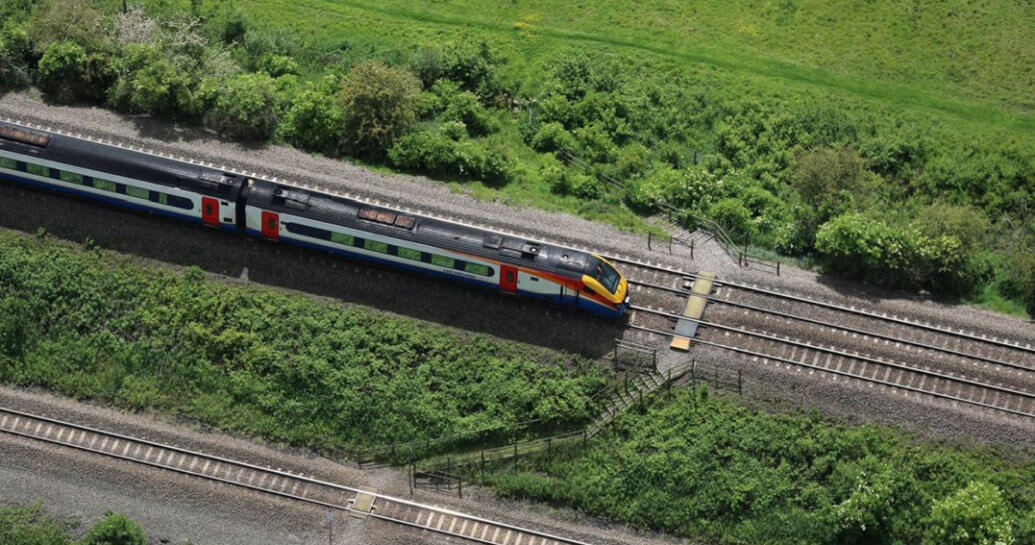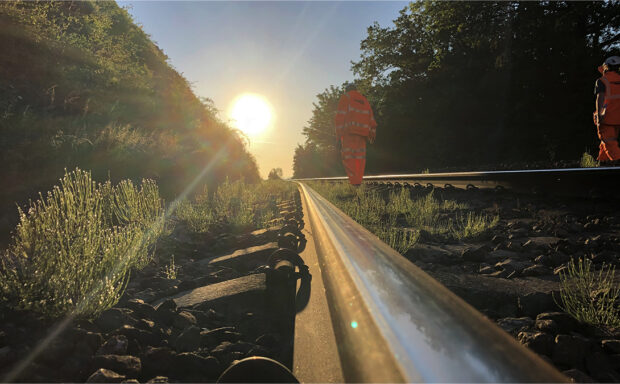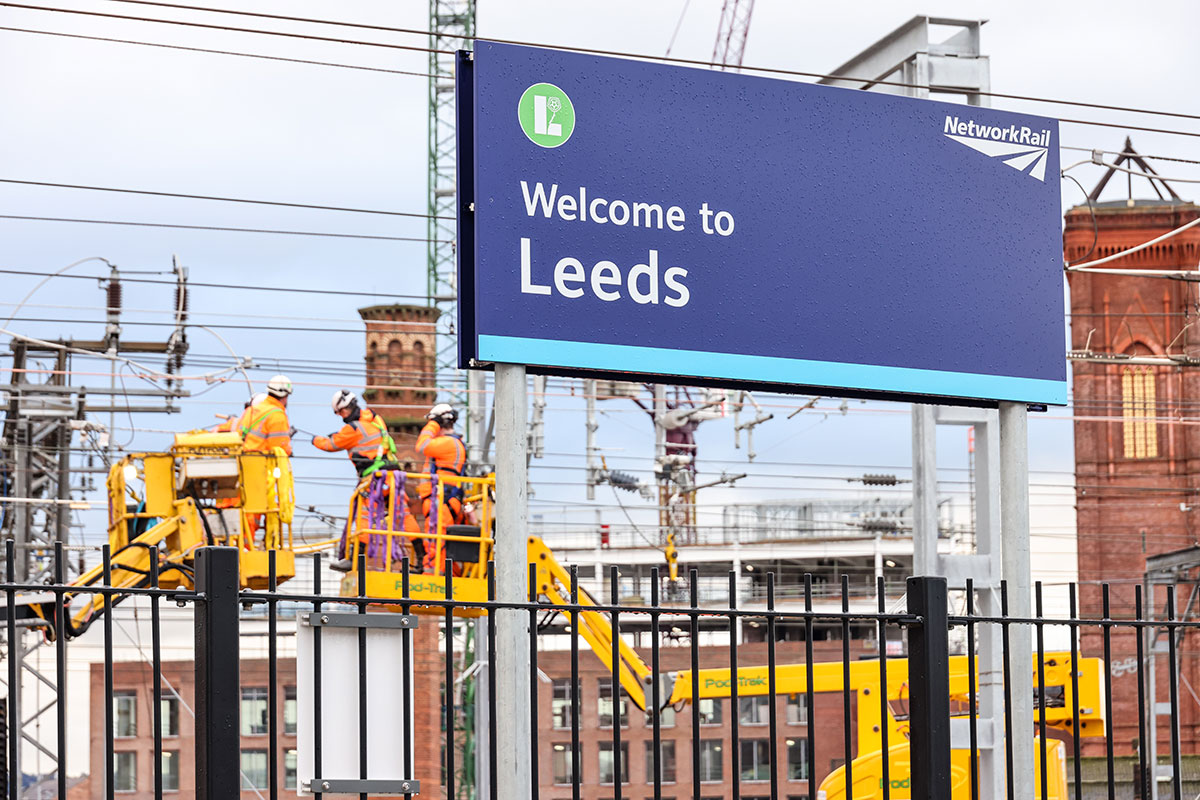The railway moves more than 4.8 million passengers every day – reducing road congestion and creating significant environmental benefits.
This World Environment Day, we round up five ways the railway helps our planet:
Low carbon emissions
For decades, rail has consistently produced by far the lowest total million tonnes of carbon dioxide equivalent (MtCO2e).
A report published by the Department for Transport in 2018, Moving Britain Ahead, showed rail produced a total of two MtCO2e in 2016 – the same as in 1990.
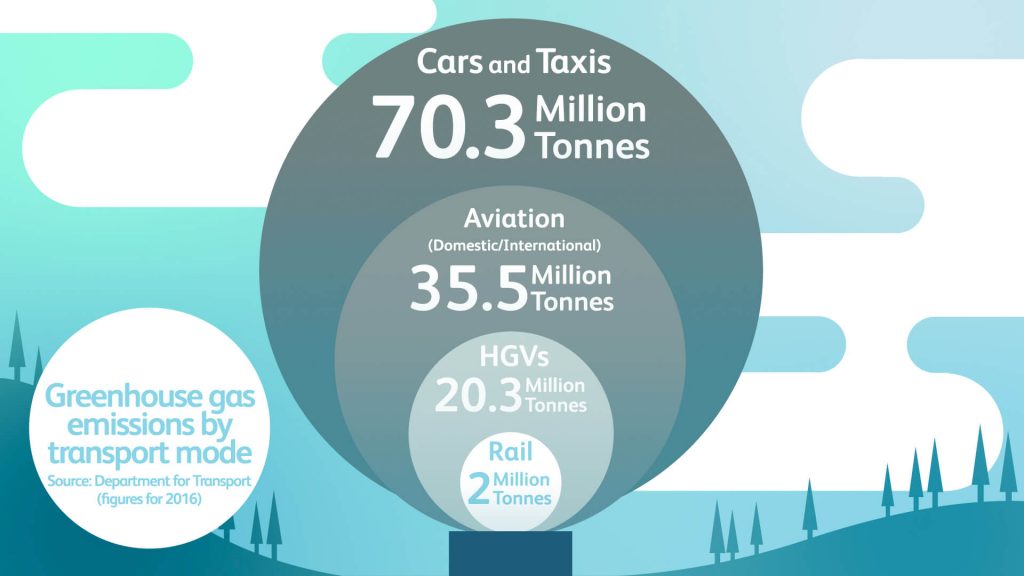
This compared with:
Cars and taxis – 70.3 MtCO2e in 2016, compared with 72.3 MtCO2e in 1990
Domestic and international aviation – 35.5 MtCO2e in 2016, up from 17.1 MtCO2e in 1990
Heavy goods vehicles – 20.3 MtCO2e in 2016, compared with 20.5 in 1990
Electric trains

Electric trains are better for the environment than diesel trains, and they’re quieter for passengers and those living close to the railway.
We’re making it possible for electric trains to travel on more areas of the rail network by electrifying railway lines that only diesel trains can currently run on.
A vision for a greener future
A project led by the Network Rail and Colas Rail in May used solar lighting and power generation to achieve a 97% diesel-free operation and prove the viability of a sustainable ‘Site of the Future’.
The major rail renewal project at Llanwern, South Wales, used solar and battery technology from Prolectric instead of diesel generators to save 6,000 litres of fuel and more than 15 tonnes of CO2over two weeks.
It was an environmental milestone towards clean, carbon-free off-grid working, in support of Network Rail’s target to reduce non-traction energy consumption by almost 20% and carbon emissions by 25% by 2024.
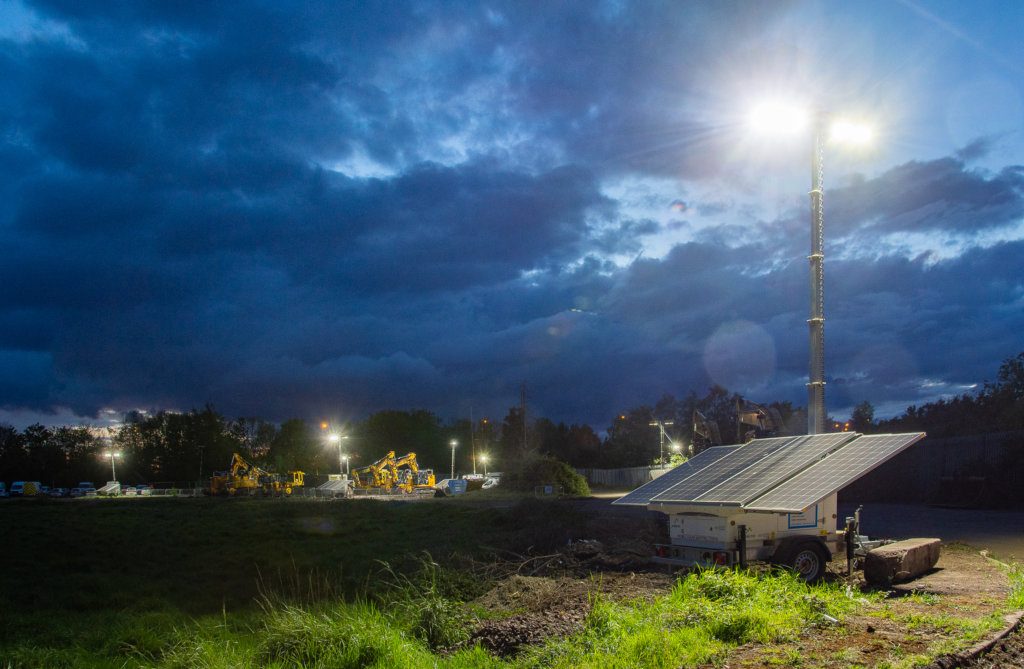
Freight
Freight doesn’t just help our businesses – its positive impact on our railways and the environment continues to grow.
The huge volumes of goods transported on our railways are an important factor in reducing carbon emissions in Britain.
Each tonne of freight transported by rail cuts carbon emissions by 76% compared with road haulage, according to a report published by Rail Delivery Group, Rail Freight: Working for Britain.

The growth of freight rail will lead to greater relief for Britain’s roads, particularly in areas like the Midlands where much of the country’s logistics sector is based. Each freight train removes up to 76 heavy goods vehicles from our roads, translating to 1.66 billion fewer HGV kilometres a year.
Find out more information on rail freight here
Network Rail’s recycling targets
Meanwhile, we’re tackling three significant environmental issues at Britain’s biggest and busiest rail stations.

As a company, we divert 94% of our waste from landfill. We now want to use our position as one the UK’s largest retail landlords to encourage the adoption of more green initiatives within managed stations, delivering benefits to our millions of station users.
We aim to:
- Ban retailers from supplying plastic cutlery and cups in managed stations by the end of 2020
- Implement a coffee cup recycling scheme for managed stations by the end of 2020
- Expand the role out of coffee ground recycling to all managed stations by the end of 2020
